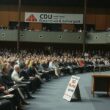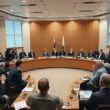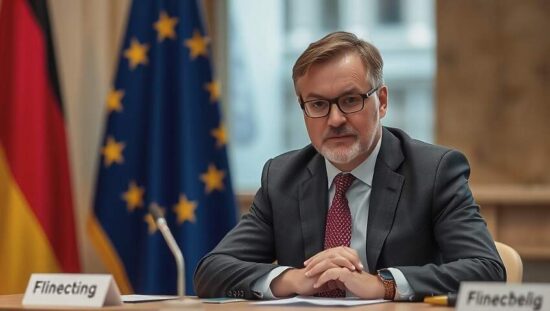Germany’s Finance Minister, Lars Klingbeil, has urged the US to engage in serious negotiations to resolve the ongoing trade dispute, rather than resorting to provocations. In an interview with Bild am Sonntag, Klingbeil emphasized the need for a swift resolution, warning that the US tariffs pose a significant threat to the American economy, just as much as they do to the German and European economies.
The German finance minister has also expressed a united European front, stating that the continent is “closed and determined to represent its interests.” The country’s automobile industry, which would be particularly affected by a trade war, has backed Klingbeil’s stance, with the president of the German Automobile Association, Hildegard Müller, emphasizing the need to avoid escalation and find a political solution.
Klingbeil has also pledged to ensure stable social insurance contributions, warning that rising contributions would have a negative impact on workers and businesses alike. He has called for structural reforms to stabilize contributions in the long term, rather than relying on short-term solutions.
In the 2025 budget, Klingbeil has instructed his fellow ministers to implement cost-cutting measures, with a focus on reducing personnel costs by 0.5% and non-personnel expenses by 2%. The finance minister has prioritized economic growth, job security and reducing energy prices, with the aim of putting Germany back on a growth trajectory.
In a rare moment of self-reflection, Klingbeil has acknowledged the need to learn to say no, a lesson he attributes to his predecessor, former Chancellor Olaf Scholz. The finance minister has also ruled out tax relief for high-income earners, arguing that those who earn a lot do not need government handouts and that the focus should be on supporting low- and middle-income workers.
As the leader of the Social Democratic Party, Klingbeil has also acknowledged the need for the party to reposition itself, following a poor showing in the recent elections. The party’s 16.4% result was a wake-up call, he said, as it showed that the party had been too focused on the minimum wage and not enough on the needs of working people.





